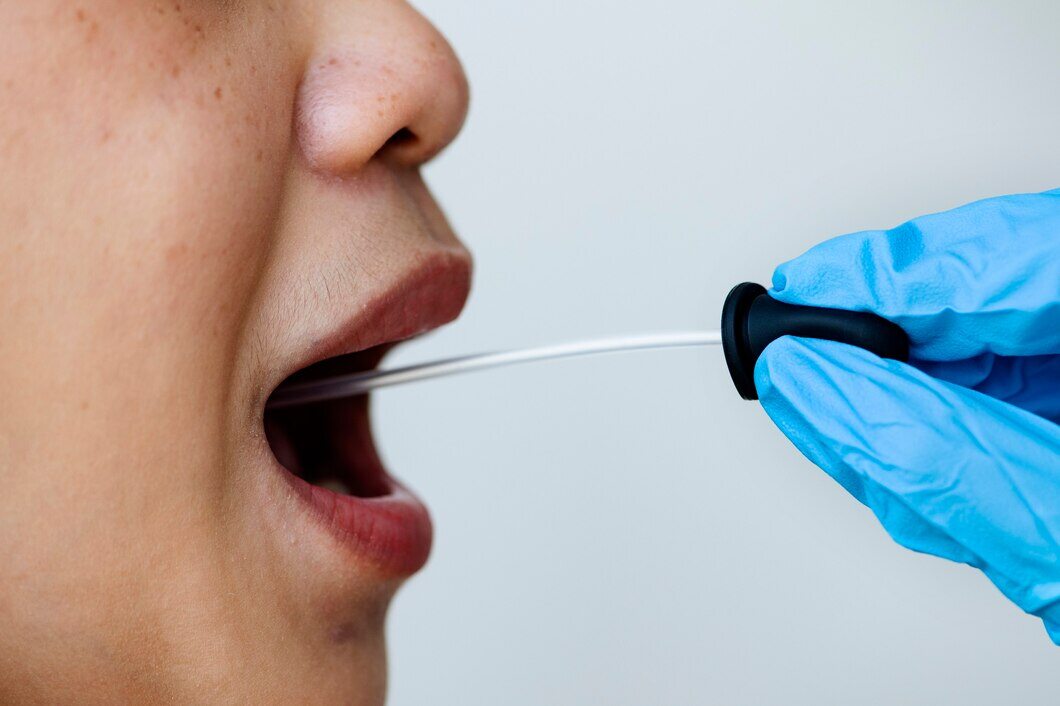Detecting and Managing Histamine Intolerance
Histamine intolerance is a condition where the body has difficulty breaking down histamine, a compound involved in immune responses, digestion, and the nervous system. When histamine builds up in the body, it can lead to various unpleasant symptoms. These symptoms can range from headaches and hives to digestive issues and fatigue, making everyday life challenging.
Many people struggle to identify histamine intolerance because its symptoms often overlap with other conditions. Common triggers, such as certain foods, stress, and environmental factors, can complicate the diagnosis. Understanding the root causes and how to manage them naturally is crucial for improving your health and quality of life.
At Infinity Wellness Telehealth, we focus on finding and fixing the core root cause of these symptoms through a holistic, functional medicine approach. By identifying the underlying issues that contribute to histamine intolerance, we can create personalized treatment plans that include dietary modifications, stress management, and natural supplements. This comprehensive approach helps reduce symptoms and promotes long-term well-being.
Histamine intolerance is a condition where the body has difficulty breaking down histamine, a compound involved in immune responses, digestion, and the nervous system. When histamine builds up in the body, it can lead to various unpleasant symptoms. These symptoms can range from headaches and hives to digestive issues and fatigue, making everyday life challenging.
Many people struggle to identify histamine intolerance because its symptoms often overlap with other conditions. Common triggers, such as certain foods, stress, and environmental factors, can complicate the diagnosis. Understanding the root causes and how to manage them naturally is crucial for improving your health and quality of life.
At Infinity Wellness Telehealth, we focus on finding and fixing the core root cause of these symptoms through a holistic, functional medicine approach. By identifying the underlying issues that contribute to histamine intolerance, we can create personalized treatment plans that include dietary modifications, stress management, and natural supplements. This comprehensive approach helps reduce symptoms and promotes long-term well-being.
Understanding Histamine Intolerance
Histamine intolerance occurs when the body cannot break down histamine efficiently. Histamine is a natural chemical involved in several important functions, including regulation of the immune system, digestion, and the nervous system. When the body produces too much histamine or lacks the enzyme diamine oxidase (DAO) needed to break it down, histamine can build up, causing various symptoms.
Some people may mistake histamine intolerance for allergies or other gastrointestinal issues, but the root causes are different. Histamine intolerance is not an allergy; it is a condition where the body is overloaded with histamine. Several factors can contribute to this overload, including certain foods, alcohol, infections, medications, and gut health imbalances.
Understanding histamine intolerance is important for managing your health effectively. By knowing the role of histamine and how it affects the body, you can better identify potential triggers and seek appropriate treatment. It is important to find a functional medicine doctor who focuses on finding and fixing the core root cause of these symptoms to help you heal.
Common Symptoms and Root Causes of Histamine Intolerance
Histamine intolerance can lead to a variety of symptoms, which can often be mistaken for other health issues. Here are some common symptoms:
- Headaches or migraines
- Hives or itchy skin
- Nasal congestion or sinus issues
- Digestive problems such as bloating, diarrhea, or abdominal pain
- Fatigue and muscle pain
- Anxiety or mood disturbances
- Irregular menstrual cycles
The root causes of histamine intolerance can vary from person to person. Some common causes include:
- Enzyme Deficiency: Some individuals lack sufficient DAO, the enzyme needed to break down histamine.
- Gut Health Issues: Conditions like leaky gut or dysbiosis can affect histamine levels.
- Certain Foods: Some foods naturally contain high levels of histamine, such as fermented foods, aged cheeses, and alcohol.
- Medications: Some medications can either release histamine or block the activity of DAO.
- Chronic Conditions: Chronic stress, infections, or illnesses can affect the body's ability to manage histamine.
Identifying these root causes is crucial for effective management. Understanding the triggers can help you make informed decisions about your diet, lifestyle, and health care. Consulting with a functional medicine doctor can provide a comprehensive approach to find the underlying causes and develop a personalized treatment plan.
Effective Natural Approaches for Managing Histamine Intolerance
Managing histamine intolerance naturally involves several strategies that focus on reducing histamine levels and supporting the body's ability to break it down. Here are some effective approaches:
1. Dietary Changes:
- Avoid High-Histamine Foods: Eliminate or reduce foods like aged cheeses, fermented foods, alcohol, and processed meats.
- Eat Fresh Foods: Freshly prepared meals tend to have lower histamine levels. Avoid leftovers as histamine levels can increase in stored foods.
- Incorporate Anti-Inflammatory Foods: Foods rich in omega-3 fatty acids, like fish and seeds, and foods with anti-inflammatory properties, like turmeric and ginger, can help manage symptoms.
2. Natural Supplements:
- Quercetin: This natural flavonoid can help stabilize mast cells and reduce histamine release.
- Vitamin C: Known for its anti-histamine properties, vitamin C can help lower histamine levels.
- DAO Enzyme Supplements: These can aid in breaking down dietary histamine.
3. Stress Management:
- Mindfulness and Relaxation Techniques: Practices like yoga, meditation, and deep breathing can help lower stress, which can trigger histamine release.
- Regular Exercise: Gentle, regular physical activity can improve overall health and stress levels, helping to manage histamine intolerance.
4. Environmental Control:
- Reduce Allergens: Use air purifiers and clean regularly to reduce dust, mold, and other common allergens.
- Avoid Chemical Irritants: Limit exposure to chemicals in cleaning products, perfumes, and personal care products.
These natural approaches can significantly help in managing histamine intolerance and improving overall well-being. Remember, it’s important to find a functional medicine doctor who focuses on finding and fixing the core root cause of these symptoms to help you heal.
The Role of a Holistic and Functional Medicine Approach
A holistic and functional medicine approach to managing histamine intolerance focuses on treating the individual as a whole. This method looks at all aspects of health and well-being, not just the symptoms. Here’s what it entails:
1. Comprehensive Evaluation:
- Detailed Medical History: Understanding a patient's medical history, lifestyle, diet, and environment helps identify potential triggers.
- Specific Lab Tests: These can identify enzyme deficiencies, gut health issues, and nutrient imbalances that contribute to histamine intolerance.
2. Personalized Treatment Plans:
- Tailored Dietary Recommendations: Based on individual needs and tolerances, a functional medicine doctor can create a specific diet plan.
- Custom Supplement Protocols: Supplements are chosen based on the unique deficiencies and needs of the patient.
3. Integrated Natural Therapies:
- Bioidentical Hormones and Herbal Remedies: Used instead of conventional drugs, these support the body’s natural healing processes.
- Holistic Practices: Techniques such as stress management, detoxification methods, and lifestyle coaching are included for comprehensive care.
4. Ongoing Support and Monitoring:
- Regular Follow-ups: Ensuring that treatment plans are effective and adjusting them as necessary.
- Patient Education: Empowering patients with knowledge about their condition and how to manage it at home.
This holistic and functional approach ensures that all contributing factors of histamine intolerance are addressed. It helps in healing the body from the inside out, leading to improved long-term health outcomes.
Conclusion
Histamine intolerance can severely impact the quality of life, but with the right approach, it is manageable. Understanding the condition, recognizing the symptoms, and knowing the root causes are essential first steps. Implementing natural and effective strategies, alongside a holistic and functional medicine approach, can make a significant difference in managing histamine intolerance.
At Infinity Wellness Telehealth, experts on functional medicine in Waxahachie, TX, specializes in holistic, root-cause care tailored to your unique health journey. Serving both local and nationwide patients through in-person and virtual services, we offer comprehensive programs to address conditions such as hormonal imbalances, chronic fatigue, and digestive issues. Our goal is to help you achieve long-term wellness and vitality.
Ready to transform your health? Book an appointment here - Our Holistic Approach to Wellness - Infinity Wellness Center.



